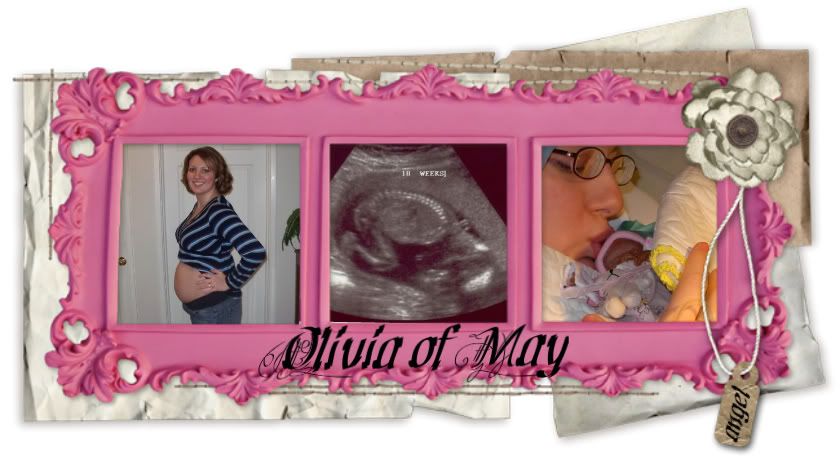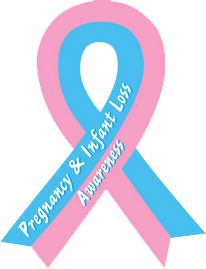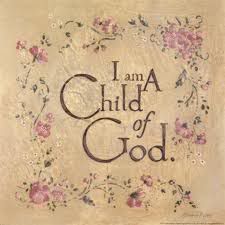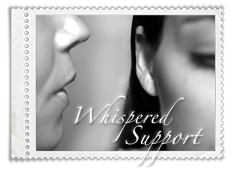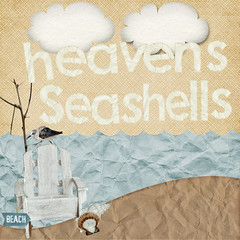 With all the talk about the Duggars losing their 20th child at 20 weeks I've seen many posts of articles about it on Facebook. This one, however, is my favorite. I do not agree with the Duggars lifestyle, but my heart goes out to them and I hope they are receiving the support they need.
With all the talk about the Duggars losing their 20th child at 20 weeks I've seen many posts of articles about it on Facebook. This one, however, is my favorite. I do not agree with the Duggars lifestyle, but my heart goes out to them and I hope they are receiving the support they need.
"Dear Michelle and Jim Bob Duggar,
I'm so sorry to hear about the death of your baby daughter Jubilee Shalom. I saw the photograph of you holding her feet, so tiny yet so perfect. And so precious. I'm sure you will treasure every photograph, especially the ones that illustrate your love for her.
Showing the photographs at Jubilee's memorial service was such a touching and fitting tribute to your baby girl. Making them available to the public is provoking both compassion and outrage. Compassion is coming from those who empathize. Outrage is coming from those who are frightened.
I wonder if you are even aware of the naysayers, the doubters, and the critics, some of whom are watching in abject horror. They look at you and can't imagine why you're not shrugging off this experience, as if it's akin to a rained-out picnic or missing a bus. They wonder, what's the big deal? You never even got to know the kid! You can just have another one. Or better yet enjoy the ones you've got!"
Click here to read the article in it's entirety: http://www.psychologytoday.com/blog/laugh-cry-live/201112/precious-photographs-open-letter-michelle-and-jim-bob-duggar.
(Photo shown is not of the Duggar's angel baby.)
Subscribe to: Posts (Atom)
21 December 2011
Precious Photographs
20 December 2011
For Friends and Family
For many families who are pregnant with or have recently delivered a very loved and wanted baby, hopes and dreams are torn apart with the news that the baby has died. For the rest of the world around them, not much seems changed. Unfortunately, something very sad and life altering has happened that needs to be acknowledged. A baby has died.
Following are some suggestions on how to support a parent whose baby has died.
Say "I’m Sorry"
If you can’t find the right words, it is better to say, “I’m sorry,” than nothing at all.
Avoid Clichés
“Everything happens for a reason.”
“Thank goodness you are young, you can still have more children.”
“There must have been something wrong with the baby.”
“I understand how you feel.” (unless you have an experience to share)
“It was meant to be”
“You have an angel in heaven.”
“At least you didn’t get to know the baby.”
“You are so strong, I could never handle this.”
“I guess it’s good it happened now.”
“At least you have children at home.”
“God would never give you more than you could handle.”
What may seem comforting to you may be very hurtful to others. Clichés tend to minimize the loss and the emotions a parent has toward their baby.
Say “I Don’t Know What to Say”
If you are unaware of what to say, simply say, “I don’t know what to say.” Honesty can be more comforting than words with less meaning.
Silence Can Be Okay
Sometimes there is just nothing to say. Just be quiet, be with them, hold their hand, touch their shoulder, or give them a hug.
Apologize for Hurtful Comments
If you do say something insensitive, acknowledge it and apologize. These comments can cause hurt and future resentment.
Responses to Death
Do the same things for the death of a baby as you would if another family member died. Send flowers, sympathy cards, share special remembrances, phone calls, make/bring dinner. If you are a close family member or friend, it may be helpful if you ask to help maintain laundry, basic housecleaning or cooking, or watch other children at home (if applicable). Be sure to obtain permission from the bereaved family before disassembling the baby’s room or removing baby items.
To read more ways to better support a parent, click here to download a brochure.
Subscribe to: Posts (Atom)
19 December 2011
Coping With the Holidays While Grieving

Christmas has always been a time for family. But when you feel like a part of your family is missing, it can be a particularly difficult time of year. Although it has been thirteen years now, I vividly remember our first Christmas after Bret died. He was born with angel wings in August 1995, but his original due date was November 30. Therefore, we had planned on having a new baby with whom to celebrate Christmas with that year. That Christmas, I worried that my emptiness would swallow me.
In the past, I relished our tradition of opening up a nice bottle of wine, cranking up the Christmas carols on the stereo, and helping our son put as many lights and ornaments on the tree as we could without toppling it over. That Christmas, we continued our tradition for our son's sake, but my heart just wasn't in it. Everything took on new meaning that year. Remembering that it was baby Jesus' birthday just reminded me of the baby I lost. The angel we always put on top of the tree gained new significance—I prayed an angel like that one would be watching over my baby. Shortly after Bret died, we were touched to find a teddy angel ornament that was dressed in blue. That Christmas, it was the last ornament we put on the tree, and many tears flowed that night as we ached for our baby boy to be with us. I dreaded Christmas day, not wanting to revisit my pain.
But like most other anxious experiences, the time leading up to the event was worse than the day itself. On Christmas morning, I began to find solace in the symbolism of the season, and I found a lot of comfort in our little blue teddy angel. I felt as though Bret was there with us. Losing Bret made me cherish my son and husband even more. It turned out to be one of the most meaningful Christmas seasons I had ever experienced.
The most important tip for handling the holidays after a major loss is to be gentle with yourself, and do what feels the most comfortable. Here are some other suggestions:
-Acknowledge that Christmas is coming. As much as you may want to avoid it, you can't.
-Try not to “float” into Christmas. Be deliberate in choosing what you would like to do.
-Avoid thinking about what you “should” do. You need to do what is right for you instead of feeling obligated. Decide to do what you can manage and let your friends and family know. There are no “right” or “wrong” ways to celebrate the holidays.
Click here to read the article in it's entirety: http://nationalshare.blogspot.com/2011/12/coping-with-holidays-while-grieving.html.
Subscribe to: Posts (Atom)
18 December 2011
Christmas Grief
 Christmas has always been a time for family. But when you feel like a part of your family is missing, it can be a particularly difficult time of year. Although it has been thirteen years now, I vividly remember our first Christmas after Bret died. He was born with angel wings in August 1995, but his original due date was November 30. Therefore, we had planned on having a new baby with whom to celebrate Christmas with that year. That Christmas, I worried that my emptiness would swallow me.
Christmas has always been a time for family. But when you feel like a part of your family is missing, it can be a particularly difficult time of year. Although it has been thirteen years now, I vividly remember our first Christmas after Bret died. He was born with angel wings in August 1995, but his original due date was November 30. Therefore, we had planned on having a new baby with whom to celebrate Christmas with that year. That Christmas, I worried that my emptiness would swallow me.
In the past, I relished our tradition of opening up a nice bottle of wine, cranking up the Christmas carols on the stereo, and helping our son put as many lights and ornaments on the tree as we could without toppling it over. That Christmas, we continued our tradition for our son's sake, but my heart just wasn't in it. Everything took on new meaning that year. Remembering that it was baby Jesus' birthday just reminded me of the baby I lost. The angel we always put on top of the tree gained new significance—I prayed an angel like that one would be watching over my baby. Shortly after Bret died, we were touched to find a teddy angel ornament that was dressed in blue. That Christmas, it was the last ornament we put on the tree, and many tears flowed that night as we ached for our baby boy to be with us. I dreaded Christmas day, not wanting to revisit my pain.
But like most other anxious experiences, the time leading up to the event was worse than the day itself. On Christmas morning, I began to find solace in the symbolism of the season, and I found a lot of comfort in our little blue teddy angel. I felt as though Bret was there with us. Losing Bret made me cherish my son and husband even more. It turned out to be one of the most meaningful Christmas seasons I had ever experienced.
The most important tip for handling the holidays after a major loss is to be gentle with yourself, and do what feels the most comfortable. Here are some other suggestions:
Acknowledge that Christmas is coming. As much as you may want to avoid it, you can't.
Try not to “float” into Christmas. Be deliberate in choosing what you would like to do.
Avoid thinking about what you “should” do. You need to do what is right for you instead of feeling obligated. Decide to do what you can manage and let your friends and family know. There are no “right” or “wrong” ways to celebrate the holidays.
Click here to read the article in it's entirety: http://nationalshare.blogspot.com/2011/12/coping-with-holidays-while-grieving.html.
Subscribe to: Posts (Atom)
